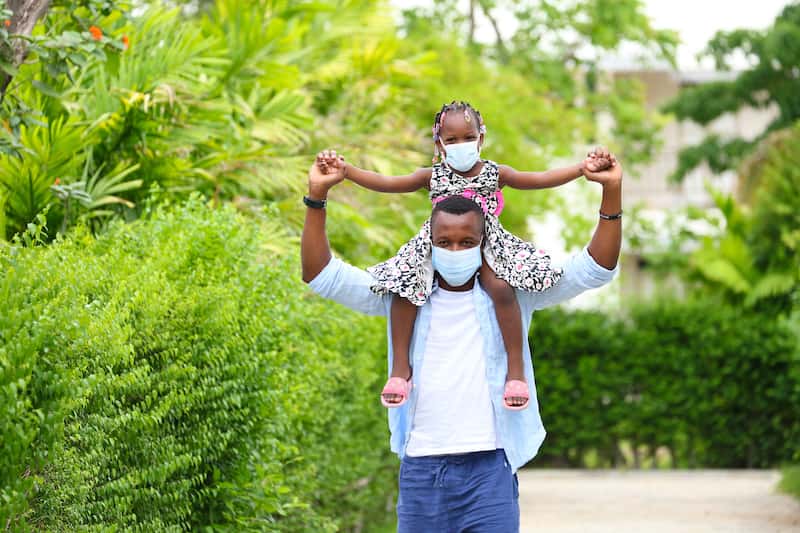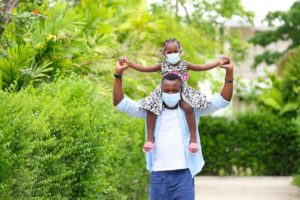Resilience Toolkit
Below you will find resources and activities that can help you build resilience personally and strengthen resilience within your family.
Below you will find resources and activities that can help you build resilience personally and strengthen resilience within your family.
We all face trauma, adversity, and other stresses. Here’s a roadmap for adapting to life-changing situations and emerging even stronger than before.
 Taking Care of Emotional Health: It is natural to feel stress, anxiety, grief, and worry during and after a disaster. Taking care of your emotional health during an emergency will help you think clearly and react to the urgent needs to protect yourself and your family.
Taking Care of Emotional Health: It is natural to feel stress, anxiety, grief, and worry during and after a disaster. Taking care of your emotional health during an emergency will help you think clearly and react to the urgent needs to protect yourself and your family.
Taking Care of Physical Health: The COVID-19 pandemic means that many of us are staying at home and sitting down more than we usually do. At a time like this, it’s very important for people of all ages and abilities to be as active as possible. Here are some ways to maintain your physical health.
Teens & Young Adults Coping with Stress Management: The COVID-19 pandemic is also impacting our youth in different ways than adults. These are some things your teens and young adults can do to manage stress.
Parent Resource Kits for Children: The pandemic can affect children’s social, emotional, and mental well-being. Here are some tools parents can use to help their children who are facing challenges.
 How to Cope with Job Stress and Build Resilience: Whether you’re working from home or still going in to the office, we can help you build resilience while dealing with the changes COVID-19 has had on your work life.
How to Cope with Job Stress and Build Resilience: Whether you’re working from home or still going in to the office, we can help you build resilience while dealing with the changes COVID-19 has had on your work life.
First Responders: First responders face an increased risk of experiencing behavioral health issues including mental illnesses and substance use disorders. Here are some ways you can learn about stress management if you work in this field.
 Squeeze Muscles: Starting at your toes, pick one muscle and squeeze it tight. Count to five. Release, and notice how your body changes. Repeat exercise moving up your body.
Squeeze Muscles: Starting at your toes, pick one muscle and squeeze it tight. Count to five. Release, and notice how your body changes. Repeat exercise moving up your body.
Belly Breathing: Put one hand on your stomach and one hand on your chest. Slowly breathe in from your stomach (expand like a balloon) and slowly breathe out (deflate).
Limit multi-tasking: Multi-tasking rarely works and can increase stress. Try to focus on one thing at a time. For example, write a list of the most important tasks you need to complete and try to be present as you complete each task one at a time.
Unplug: Take 30 minutes where you don’t look at your phone, computer or TV. Notice your impulses and emotional reactions.
Meditation Webinars: Meditation is a tool for calming anxiety and managing stress. The American Psychological Association has provided these meditation webinars which can help build resilience.
Below you will find resources and activities that can help you build resilience personally and strengthen resilience within your family.

We all face trauma, adversity and other stresses. Here’s a roadmap for adapting to life-changing situations and emerging even stronger than before.
Taking Care of Emotional Health: It is natural to feel stress, anxiety, grief, and worry during and after a disaster. Taking care of your emotional health during an emergency will help you think clearly and react to the urgent needs to protect yourself and your family.
Taking Care of Physical Health: The COVID-19 pandemic means that many of us are staying at home and sitting down more than we usually do. At a time like this, it’s very important for people of all ages and abilities to be as active as possible. Here are some ways to maintain your physical health.
Teens & Young Adults Coping with Stress Management: The COVID-19 pandemic is also impacting our youth in different ways than adults. These are some things your teens and young adults can do to manage stress.
Parent Resource Kits for Children: The pandemic can affect children’s social, emotional, and mental well-being. Here are some tools parents can use to help their children who are facing challenges.

How to Cope with Job Stress and Build Resilience: Whether you’re working from home or still going in to the office, we can help you build resilience while dealing with the changes COVID-19 has had on your work life.
First Responders: First responders face an increased risk of experiencing behavioral health issues including mental illnesses and substance use disorders. Here are some ways you can learn about stress management if you work in this field.

Squeeze Muscles: Starting at your toes, pick one muscle and squeeze it tight. Count to five. Release, and notice how your body changes. Repeat exercise moving up your body.
Belly Breathing: Put one hand on your stomach and one hand on your chest. Slowly breathe in from your stomach (expand like a balloon) and slowly breathe out (deflate).
Limit multi-tasking: Multi-tasking rarely works and can increase stress. Try to focus on one thing at a time. For example, write a list of the most important tasks you need to complete and try to be present as you complete each task one at a time.
Unplug: Take 30 minutes where you don’t look at your phone, computer or TV. Notice your impulses and emotional reactions.
Meditation Webinars: Meditation is a tool for calming anxiety and managing stress. The American Psychological Association has provided these meditation webinars which can help build resilience.
Unplug: Take 30 minutes where you don’t look at your phone, computer or TV. Notice your impulses and emotional reactions.